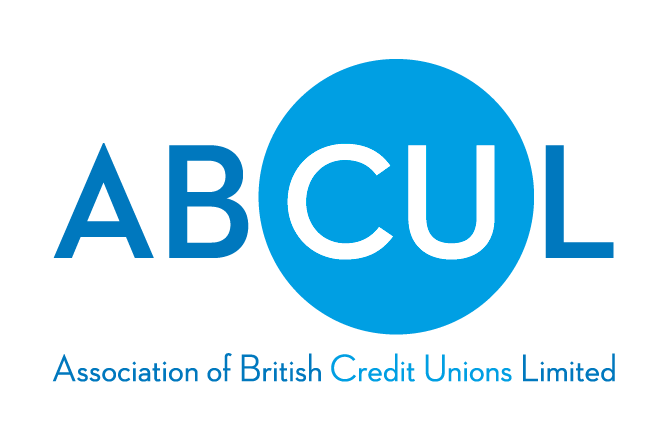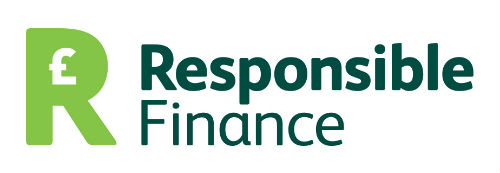Why we exist
The problem we’re trying to solve
Millions of people are unable to access mainstream products and services others rely on to meet their financial needs. Without safety nets like credit, insurance or savings, everyday life events or financial shocks can tip people into vulnerable circumstances.
Having to choose between going without essentials or turning to high cost credit or illegal money lenders has a huge impact on peoples’ physical and mental health. It can start a spiral into long term debt and limit peoples’ ability to properly participate in society.
We want everyone to be able to access the financial products and services they need throughout their life. In tough times many people can turn to financial safety nets like savings, credit cards or an overdraft at affordable rates. But for the millions of people in financially vulnerable circumstances these options are often unfairly out of reach.
Today there are 14.2 million people with low financial resilience. That’s more than a quarter of all adults in the UK – a number that’s risen by 3.5 million people since the start of the Covid-19 pandemic.
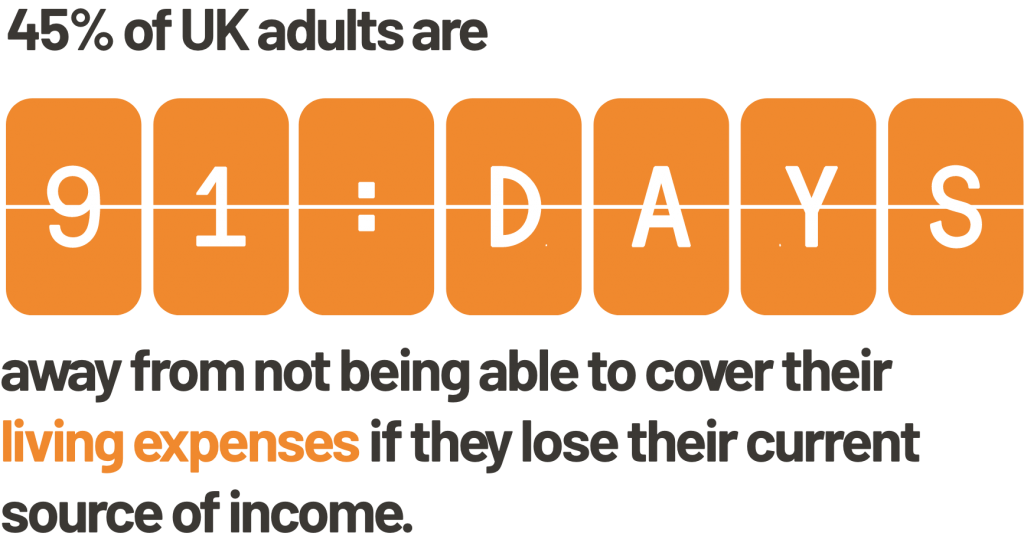
What do we mean by financially vulnerable circumstances?
Essentially, we define vulnerability in the same terms as the Financial Conduct Authority (FCA), where a vulnerable customer is someone who, due to their personal circumstances, is especially susceptible to harm.
Everyone is at risk of becoming vulnerable at some point during their lives. This risk is increased by characteristics of vulnerability related to four keys drivers:
Health
this could be ongoing physical or mental health issues for you or loved ones, sudden health needs or simply ageing ailments that affect ability to carry out day to day tasks
Life events
anything from birth and bereavement to a relationship breakdown or losing your job
Resilience
low ability to cope with financial or emotional shocks, including lack of savings and insurance safety nets or low emotional resilience
Capability
this spans financial knowledge, your ability to pay for things, future planning, environmental and income factors
Evidence suggests that those in the most vulnerable circumstances are impacted by each of these drivers. And that these drivers will shape customers’ needs over the whole of their financial lives.
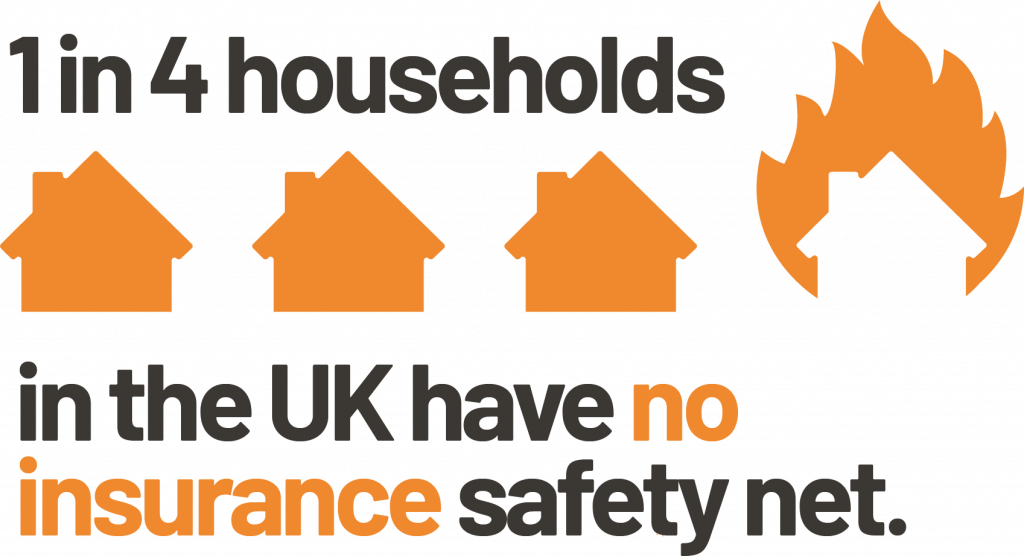
Who we serve
Millions of people are living with the daily realities of financial exclusion. Those in financially vulnerable circumstances aren’t spread evenly across the country – they are concentrated in some of the most deprived regions, hardest hit by the growing cost of living crisis and facing dwindling options as traditional finance providers struggle or exit the market altogether.
While we’re all capable of becoming financially vulnerable, our research shows that certain circumstances make some people more likely to face financial exclusion*:
The majority of the people we support live in the most deprived 20% of areas of the country, based on the Index of Multiple Deprivation
35% are lone parents with dependent children, compared to 9% of the overall UK population
58% are social housing tenants, compared to 17% of the overall population in England
*Estimated data from sources including Statistica, Gov.uk, Office for National Statistics and reports from various community finance providers
The Covid-19 pandemic has delivered uneven outcomes too. While many have been able to save more, lots of families have seen their savings eroded. Since March 2020, 11m people have accumulated £25b of debt to pay for essentials.*
Those who can least afford it have been hit the hardest – women, people from certain minority and ethnic communities and those already in financially vulnerable circumstances.
*StepChange, Covid Debt Rescue
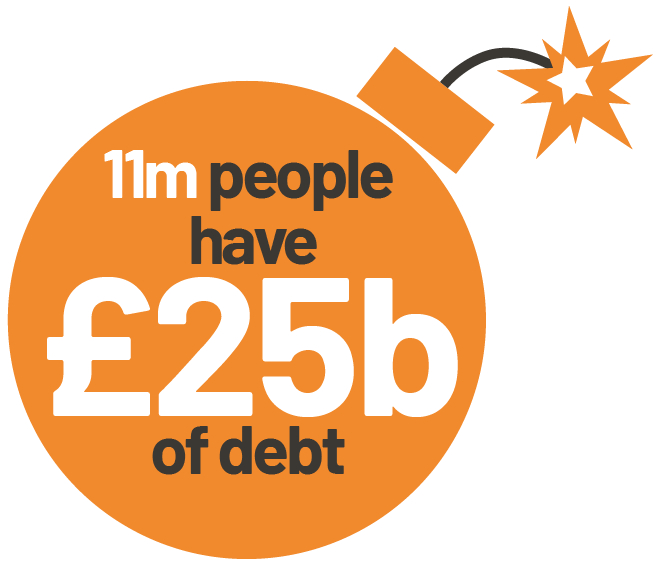
Our strategy
Financial exclusion and low financial resilience are key barriers to opportunity. Yet with access to fair and affordable financial products and services, everyday life events or financial shocks can be managed.
Our role is to level up financial inclusion. We want to see well designed financial products and services that better respond to people’s needs and support their financial wellbeing.
We’ve prioritised three key areas for our work:
Expanding the provision of affordable credit
Partnering with banks and financial services providers to increase provision of services
Developing new products and services to address market gaps
Everything we do is focused on whether we’re changing the financial services system for the better – so that the whole sector provides financially inclusive products and services in a sustainable way.
What we do
We work with the financial services sector to understand how to serve people well when they are in vulnerable circumstances. Our job is to ensure that well designed products and services are available at scale, everybody is aware of all the choices and financial services organisations can develop sustainable business models to enable them to serve this customer group.
- We invest in organisations already serving those in vulnerable circumstances well – to help them grow and reach more customers
- We catalyse investment in developing new products, services and technologies – supporting all financial service providers to better serve this customer group
- Our research programmes generate a rich evidence base to inform policy and regulation – that supports serving people in vulnerable circumstances
Our key programmes
Expanding the provision of affordable credit
We’re working to grow the amount of affordable credit delivered by community finance providers like credit unions and community development finance institutions (CDFIs) through our:
- Affordable Credit Scale Up Programme
- Technology investments
- Best practice tools and resources
Partnering with banks and financial services providers to increase provision of services
Major retail banks play an important role in a functioning market. We’re working with them and other mainstream providers to increase access to fair and affordable products and services through:
- Funding community finance
- Measuring financial inclusion activity
- Research into best practice
Developing new products and services to address market gaps
Innovation is key to ensuring current and evolving customer needs are met. So we’re working with our partners to design, pilot and scale affordable and inclusive financial solutions through our:
- No Interest Loan Scheme pilot
- Solutions tackling problem debt
- Other product pilots
How we do it
Our work is based on data and evidence to support the best possible design. It’s about finding solutions that work and supporting providers to deliver these at scale. Then taking that learning and sharing it across the financial services sector to achieve the transformation we believe is necessary.
Working collaboratively with a range of groups who are already active across the financial inclusion and financial services sectors, we follow this simple 5 step approach to find and scale the most appropriate solutions:
-
Diagnose the issue/opportunity for focus
-
Discover what great solutions and evidence already exist
-
Dream what a great outcome would look, feel, sound like
-
Design and build evidence and capability to scale existing and/or innovate new solutions
-
Deliver, iterate and evaluate
The way we work with each group may differ, but our collective ambition is to increase access to fair and affordable financial products and services for everyone throughout their lives. Here’s those we proudly working alongside:
Who we work with
How we make a difference
Our work creates impact in three ways:
-
Direct impact on partners through our investments and targeted engagement work
-
Indirect impact on the customers our partners serve
-
Impact on the wider market through our systems change activity and our work with mainstream finance providers and policy makers
Highlights so far include:
Direct impact on partners
We’ve invested over £26.5m in scaling community finance providers through our Affordable Credit Scale Up Programme, backing business plans projected to triple the availability of affordable credit to approximately £900m by 2025.
We’ve also deployed £3.9m in grants to 31 community finance providers through our Covid-19 Resilience Fund
This helped preserve approximately 50% of affordable lending capacity targeted at people in vulnerable circumstances.
An independent evaluation of the fund found it was ‘used effectively and met its key objectives while demonstrating considerable best practice in fund design.’
Indirect impact on customers
As we do not serve customers directly, our impact is through the work of organisations we invest in. An independent report into one of our investees, Fair for You, showed how they have helped move over 70% of their customers away from harmful high cost credit.
And saved over £2m from reduced use of NHS services in their first five years of operation.
Case Studies
Most powerful are the stories of individuals as examples of the difference that well designed financial products and services can make to their lives:
Safia, single mother of two, North West England
Safia was due to start a new job after a period of unemployment and needed to place her children into a nursery. While she was eligible to get the fees reimbursed, she needed a loan to cover the upfront payment required by the nursery.
The initial application screening showed she wasn’t eligible for an interest bearing loan, but she could afford to pay the loan principal without interest. South Manchester Credit Union were able to offer her a £350 no interest loan to cover the fees and she is now back working and paying off her loan.
Erica, Mum and carer for her autistic son, Midlands
Erica has an autistic son who had a lot of accidents and previously had to dry some of his clothes with a hairdryer. She used Fair for You to buy a tumble dryer and a bed for her son (who previously slept in her bed:
‘It was nice to know there was someone who actually cared about your situation. My son has slept through the night. He seems a lot happier.’
Erica has since been able to start her own small business and set up a mutual aid group in her community.
Laura, divorced Mum looking for a better job, Lancashire
Laura had been through a messy divorce from an abusive relationship. Moneyline helped her buy a new washing machine ahead of an important job interview, when her options elsewhere were ‘non-existent’:
‘At one point I was working 5 jobs. They showed faith in me. It’s no exaggeration to say their support meant I could keep my family together.’
Laura got the job and in secure employment with decent pay and no housing debt.
Impact on the wider market
This area is the hardest to measure quantitatively. Instead, we have set out our longer term goals for what we believe a well functioning market looks like and will be reporting narratively on the work we are doing and the indications that progress is being made in the following areas:
- Financial inclusion remains integrated into mainstream government policy agendas
- Financial services will be better regulated to support those in vulnerable financial circumstances – supporting a nimble, responsive sector with a focus on financial inclusion
- Financial services is led by a new generation of innovative, compassionate, skilled, authentic leaders
- Financial services complete the shift from serving shareholders to serving all stakeholders
- Sector wide, sustainable processes, capital and subsidy mechanisms are in place to address market gaps and serve vulnerable groups
Join the mission
If you strive to make the financial services sector fairer for all, we’re interested in conversations about how we can work together to make it happen.
We support and partner with organisations of all sizes from a wide range of sectors. We’re all united by our mission of making finance fairer for everyone.
